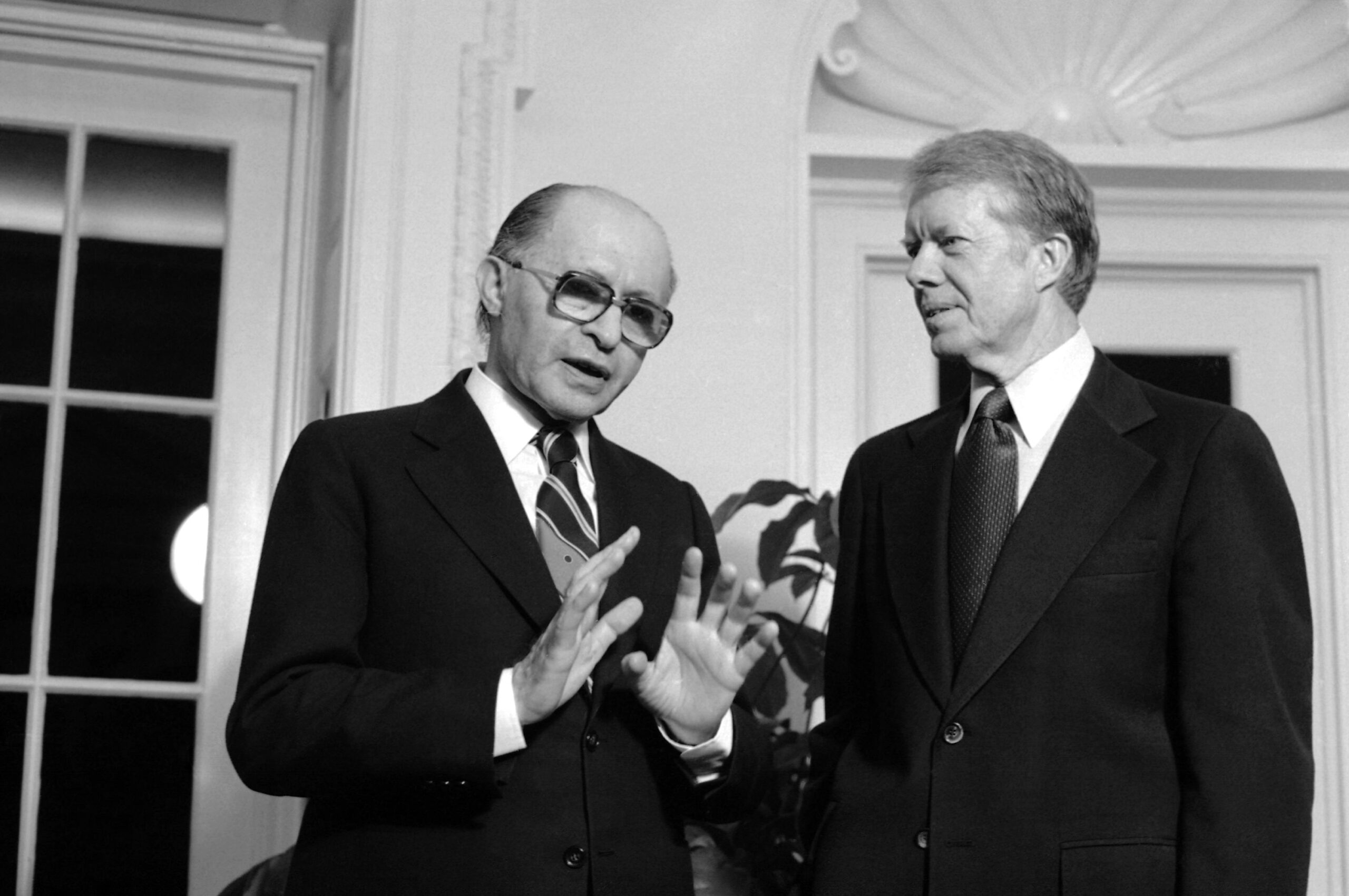Commemorating nearly 40 years since United States President Jimmy Carter initiated the negotiations that led to Israel’s surrender of the Sinai Peninsula to Egypt, the Center for Israel Education is incrementally releasing sensitive memoranda from the Carter administration archives detailing conversations during those negotiations.
The fourth memo in a 10-part series highlighting the Carter administration’s involvement in the Arab-Israeli conflict unveiled a March 1978 meeting in Washington between Carter’s team and an Israeli delegation led by Prime Minister Menaḥem Begin.
The conversation from that meeting shows an American administration intent on forcing Israel to relinquish not only Sinai, but also most of the West Bank, Gaza region and the Golan Heights.
In response to the American pressure, Begin expressed his willingness to offer Palestinians the option of full Israeli citizenship with equal rights but would leave the choice in the hands of individual Palestinians themselves.
Zbigniew Brzezinski, Carter’s national security adviser, rejected Begin’s offer of citizenship for Palestinians on the grounds that Israel would then retain control over the West Bank, revealing that from the perspective of American interests, an Israeli withdrawal was more important than addressing the actual needs of Palestinians.
Israel’s foreign minister at the time, Moshe Dayan, strenuously objected to Washington’s demands, arguing that the Samaria and Judea regions falling under foreign control would endanger Israel.
Brzezinski appeared to become more belligerent as the meeting dragged on, attacking the notion of Israel maintaining forces in the West Bank, characterizing it as an attempt for Israel to “perpetuate [Israeli] control” of the area.
“If Israel were to speak of its forces being withdrawn from control of the West Bank and Gaza to agreed emplacements, and if authority were to devolve from Israel and Jordan, then your own plan could be the basis for a solution and could open the way to peace,” Brzezinski told the Israelis.
“Alternatively, there could be strong suspicions that you intend to perpetuate your control, and that you intend to deal very differently with the Sinai and with the West Bank. We need a solution to make clear that your plan can be the basis for peace.”
The meeting ended with Carter asking Begin to be “flexible” about potential paths forward in the negotiations, saying “we have reached the point of possible success. But we are on the verge of seeing that lost.”
Begin closed by telling Carter he would think more about it, and that he would speak with him again later in the evening.
The Carter-brokered negotiations between Israel and Egypt resulted in the signing of the Camp David Accords in September 1978. The Israeli-Egypt peace treaty was later signed in March 1979 and Israel surrender the entire Sinai to Egypt in 1982.





